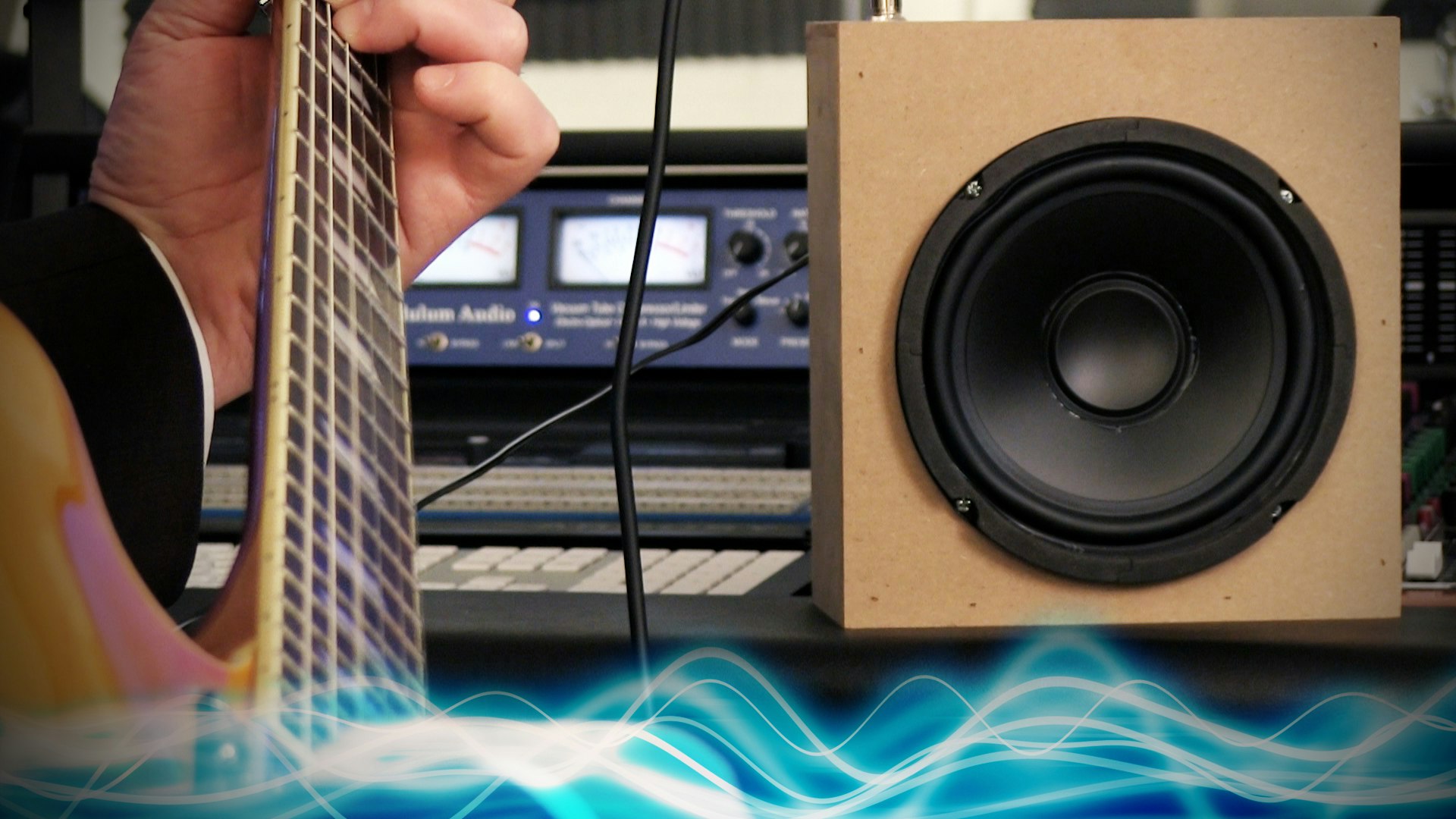Acoustical Engineer
A Career Exploration: Acoustical Engineer
Acoustical engineering is a fascinating branch of engineering focused on the science and application of sound and vibration. It involves understanding how sound is generated, transmitted, absorbed, and perceived. Professionals in this field work to control noise, improve sound quality, and utilize sound and vibration for various technological purposes.
Imagine designing a concert hall where every note resonates perfectly, or developing headphones that silence the roar of a jet engine. Acoustical engineers tackle these challenges, blending physics, engineering, and sometimes even artistry. They shape our auditory experiences, from the quietest libraries to the most immersive sound systems, making it a field with tangible impacts on daily life and technology.
What is Acoustical Engineering?
Defining the Field and Its Boundaries
At its core, acoustical engineering applies scientific principles to manage sound and vibration. This broad field encompasses everything from designing quieter machines and buildings to developing advanced audio technologies and medical ultrasound devices. It requires a deep understanding of wave physics, signal processing, and material science.
The scope is vast. Acoustical engineers might work on architectural acoustics, ensuring optimal sound within spaces like classrooms or theaters. Others focus on environmental noise control, mitigating noise pollution from transportation or industry. Many contribute to product design, optimizing the sound characteristics of vehicles, consumer electronics, or musical instruments.
It's a field that often intersects with other disciplines. Acoustical engineers collaborate closely with mechanical engineers on vibration issues, electrical engineers on audio systems and transducers, and architects on building design. This interdisciplinary nature makes it a dynamic and constantly evolving profession.
Where Acoustical Engineers Make an Impact
Acoustical engineers find opportunities across a diverse range of industries. The construction and architecture sectors rely on them for designing buildings with appropriate sound insulation and room acoustics. Think concert halls, recording studios, hospitals, and even residential buildings where quiet enjoyment is valued.
The automotive and aerospace industries employ acoustical engineers to reduce noise and vibration in vehicles and aircraft, enhancing passenger comfort and meeting regulatory noise limits. This involves complex analysis of engines, airflow, and structural vibrations.
Audio technology is another major area. Engineers work on designing loudspeakers, microphones, headphones, and digital audio processing algorithms. This extends into consumer electronics, professional audio, and telecommunications, shaping how we create, record, and listen to sound.
Other sectors include environmental consulting (assessing noise impact), industrial noise control (making factories safer and quieter), underwater acoustics (sonar systems), and biomedical engineering (ultrasound imaging and therapy).
Connections to Other Engineering Fields
Acoustical engineering is often considered a specialization within broader engineering disciplines, most commonly Mechanical Engineering due to the strong link between acoustics and vibration. Many university programs in acoustics are housed within mechanical engineering departments.
There are also significant overlaps with Electrical Engineering, particularly in areas like audio signal processing, transducer design (microphones, speakers), and electroacoustics. Understanding circuits, signals, and systems is crucial for many acoustical applications.
Physics forms the fundamental bedrock of acoustics. Concepts from wave mechanics, fluid dynamics, and thermodynamics are essential. Therefore, a strong background in Physics is often a prerequisite or a parallel path into the field.
Architectural and Civil Engineering also intersect with acoustics, especially in building design and urban planning, where noise control and sound quality are important considerations.
Core Principles of Acoustical Engineering
Understanding Sound, Vibration, and Noise
The foundation of acoustical engineering lies in understanding sound waves—how they are created by vibrating sources, travel through media like air or water, and interact with objects. This involves studying concepts like frequency, wavelength, amplitude, intensity, and the decibel scale.
Vibration analysis is equally crucial, as vibrations are often the source of unwanted noise or can affect structural integrity. Engineers learn to measure, analyze, and control vibrations in machines, buildings, and other systems. Understanding resonance, damping, and modal analysis is key.
Noise control is a primary application. It involves strategies to reduce unwanted sound through absorption (using materials that soak up sound energy), insulation (blocking sound transmission), and damping (reducing vibrations). This requires knowledge of material properties and acoustic phenomena like reflection, diffraction, and refraction.
To build a solid grasp of these fundamentals, exploring introductory physics courses focusing on waves and oscillations can be very beneficial.
These foundational texts offer deep dives into the theoretical underpinnings of sound and vibration control.
Essential Tools and Software
Modern acoustical engineering relies heavily on specialized tools and software. Sound level meters, microphones, accelerometers, and data acquisition systems are essential for measuring sound pressure levels, vibrations, and other acoustic parameters accurately.
Computational modeling plays a huge role. Software based on methods like the Finite Element Method (FEM) or Boundary Element Method (BEM) allows engineers to simulate sound fields, predict noise transmission, and optimize designs virtually before building prototypes. Familiarity with software like COMSOL Multiphysics, ANSYS, or specialized acoustic packages (e.g., EASE, CATT-Acoustic for room acoustics) is often required.
Signal processing software, such as MATLAB or Python with specific libraries (like SciPy), is used extensively for analyzing measurement data, filtering signals, and developing audio algorithms. This allows engineers to extract meaningful information from complex sound and vibration signals.
Developing skills in these computational tools is crucial for efficiency and advanced analysis in the field.
Measurement and Analysis Techniques
Accurate measurement is critical in acoustics. Engineers learn standardized procedures for measuring quantities like sound power, sound absorption coefficients of materials, sound insulation of walls, and reverberation time in rooms. Organizations like ISO and ANSI define many of these standards.
Techniques range from simple sound level measurements to complex procedures like sound intensity mapping (to locate noise sources) or modal analysis (to understand structural vibration patterns). Understanding calibration, measurement uncertainty, and proper microphone/sensor placement is vital.
Data analysis involves processing the raw measurement data to extract useful metrics and insights. This often involves techniques like Fourier analysis (to analyze frequency content), filtering, and statistical analysis. Presenting results clearly through graphs and reports is also a key skill.
Mastering these techniques requires both theoretical knowledge and hands-on experience, often gained through laboratory work in university programs or on-the-job training.
These resources offer comprehensive overviews of acoustic measurement and system design principles.
Career Paths for Acoustical Engineers
Common Roles and Specializations
Acoustical engineers hold various job titles depending on their specialization and industry. Common roles include Noise Control Engineer, focusing on reducing noise from products or environments. Audio Systems Designer develops hardware and software for sound reproduction and recording.
An Acoustical Consultant advises clients (architects, developers, manufacturers) on acoustic design and noise issues. Vibration Analysts specialize in measuring and mitigating mechanical vibrations. Other titles might include Architectural Acoustician, Environmental Noise Specialist, or Audio Algorithm Engineer.
Specializations often align with industries: automotive NVH (Noise, Vibration, and Harshness), building acoustics, aerospace acoustics, underwater acoustics (sonar), or musical acoustics. Each demands specific knowledge and skills within the broader field.
Industries with High Demand
Demand for acoustical engineers exists across several key sectors. The construction and Architecture industries consistently need experts for building design and environmental noise assessment, driven by regulations and occupant comfort expectations.
Automotive and Aerospace manufacturers hire engineers to manage NVH challenges, crucial for product quality and regulatory compliance. As vehicles become electric, different types of noise sources become prominent, creating new challenges.
The consumer electronics industry, particularly companies developing audio products like headphones, smart speakers, and smartphones, offers numerous opportunities. There's also demand in professional audio, broadcast, and telecommunications.
Consulting firms that provide specialized acoustic services to various industries are also major employers. According to the U.S. Bureau of Labor Statistics, outlook for related fields like Mechanical Engineering remains steady, suggesting stable opportunities for specialized roles within it, though specific data for acoustical engineers is limited.
Exploring foundational courses can provide insights into specific industry applications, such as building acoustics.
Freelance and Corporate Pathways
Most acoustical engineers work in corporate settings for large manufacturers, engineering firms, or specialized consultancies. These roles typically offer structured career paths, benefits, and access to significant resources and projects.
However, freelance or independent consulting is also a viable path, particularly for experienced engineers with established reputations and networks. Independent consultants often work on specific projects for various clients, offering flexibility but requiring strong business development skills.
Some engineers may also find roles in government agencies (e.g., environmental protection, occupational safety) or research institutions and universities. The choice between pathways depends on individual preferences for work environment, project variety, stability, and autonomy.
Salary expectations vary by location, experience, education level, and industry. Generally, specialized engineering roles like acoustics command competitive salaries, often comparable to mechanical or electrical engineers. Researching salary surveys from professional organizations like the Acoustical Society of America (ASA) or INCE-USA can provide more specific insights.
Formal Education Pathways
Relevant Undergraduate Degrees
A bachelor's degree in engineering or physics is typically the minimum requirement to enter the field of acoustical engineering. The most common path is through Mechanical Engineering, as many programs offer acoustics and vibration courses as electives or concentrations.
Electrical Engineering is another strong foundation, especially for those interested in audio electronics, signal processing, and transducer design. A degree in Physics provides the essential theoretical background in wave phenomena and mechanics.
Some universities offer dedicated undergraduate programs or tracks in Acoustical Engineering or Engineering Physics with an acoustics focus, though these are less common. Regardless of the specific major, a strong grounding in mathematics (calculus, differential equations, linear algebra) and physics is essential.
These introductory courses cover the fundamental physics principles underlying acoustics.
Graduate Studies in Acoustics
While a bachelor's degree can open doors to entry-level positions, a master's or Ph.D. degree is often preferred, and sometimes required, for more specialized roles, research positions, or advancement in the field. Graduate programs offer in-depth study of specific areas like architectural acoustics, noise control, signal processing, or underwater acoustics.
Many universities worldwide offer specialized graduate programs in acoustics, often within their engineering or physics departments. These programs typically involve advanced coursework, research projects, and thesis work, providing deep expertise.
Pursuing graduate studies allows for specialization and development of advanced analytical and research skills highly valued by employers in industry and academia. It's a significant commitment but can lead to more advanced and impactful career opportunities.
Advanced courses delve into specific applications and theoretical frameworks relevant to graduate studies.
Accreditation and Professional Certification
When choosing an engineering program, look for accreditation from recognized bodies, such as ABET (Accreditation Board for Engineering and Technology) in the United States. Accreditation ensures the program meets quality standards for the profession.
While not always mandatory for practice, professional licensure as a Professional Engineer (PE) can be advantageous, particularly for consultants or those in roles with public safety responsibilities. Requirements typically include an accredited degree, work experience, and passing exams.
Specific certifications in acoustics exist, such as the Board Certification offered by the Institute of Noise Control Engineering (INCE-USA). This certification demonstrates a high level of competence in noise control engineering and can enhance career prospects, although it typically requires significant experience.
Joining professional societies like the Acoustical Society of America (ASA) or regional chapters provides access to networking, conferences, publications, and continuing education opportunities, which are valuable throughout one's career.
Online Learning and Self-Study
Key Topics for Independent Learners
For those exploring acoustics outside traditional academic paths, or professionals looking to upskill, online learning offers valuable resources. Key topics to focus on include the fundamentals of sound waves and vibration, basic signal processing, principles of noise control, and properties of acoustic materials.
Understanding Fourier analysis, digital filtering, and basic measurement techniques is crucial. Familiarity with psychoacoustics—how humans perceive sound—is also important for many applications, especially in audio and architectural acoustics.
Online courses covering Physics (especially waves and mechanics), Signal Processing, and introductory engineering mathematics can build a strong foundation. Many platforms offer courses specifically on acoustics or related topics like audio engineering.
These courses cover essential wave physics and signal processing concepts relevant to acoustics.
Learning Through Projects
Theoretical knowledge is best solidified through practical application. Self-directed projects are an excellent way to learn. Examples could include building and testing a simple sound-absorbing panel, writing code to analyze sound recordings, simulating room acoustics using free or trial software, or even designing and building a small loudspeaker.
Start with simple goals and gradually increase complexity. Documenting your projects, perhaps on a personal website or blog, can showcase your skills and initiative to potential employers or academic programs.
Contributing to open-source projects related to audio processing or acoustic simulation can also provide valuable experience and networking opportunities. Look for communities online focused on DIY audio or acoustics.
Exploring specific techniques like compression or enclosure design through targeted courses can support project-based learning.
Complementing Formal Education with Online Resources
Online courses can effectively supplement a formal degree program. They can help bridge gaps in prerequisite knowledge, offer deeper dives into specific topics not covered extensively in your curriculum, or provide exposure to software tools used in industry.
Students can use online resources to prepare for challenging courses or explore specializations before committing to elective tracks. Platforms like OpenCourser aggregate courses from various providers, making it easier to find relevant material.
For professionals, online learning facilitates continuing education, helping them stay current with new technologies and techniques without necessarily returning to university full-time. Certifications from online courses can also demonstrate ongoing professional development.
OpenCourser's Learner's Guide offers tips on structuring self-study and making the most of online educational resources, which can be particularly helpful for independent learners.
Industry Applications of Acoustical Engineering
Real-World Examples and Case Studies
The impact of acoustical engineering is evident in many areas. Consider the design of world-class concert halls like the Walt Disney Concert Hall; achieving its renowned sound involved intricate acoustic modeling and material selection by specialized consultants.
In transportation, engineers work constantly to make cars, trains, and airplanes quieter. This involves analyzing engine noise, tire-road interaction, and airflow, then implementing solutions like sound-damping materials and active noise control systems.
Environmental noise control projects aim to mitigate noise pollution from sources like highways, airports, or industrial facilities. This might involve designing noise barriers, optimizing flight paths, or enforcing noise regulations to protect community health and well-being.
Understanding the health risks associated with noise is critical in many applications.
Emerging Markets and Technologies
The field is constantly evolving. Wearable audio technology, including advanced hearing aids, hearables, and sophisticated noise-canceling headphones, represents a significant growth area driven by advances in miniaturization and digital signal processing.
Immersive audio experiences, using techniques like spatial audio (3D audio), are becoming increasingly important in virtual reality, gaming, and entertainment systems, creating new challenges and opportunities for audio engineers.
There's also growing interest in using sound for novel applications, such as acoustic sensors for industrial monitoring or therapeutic ultrasound in medicine. These areas push the boundaries of traditional acoustics.
Regulatory Landscape and Standards
Acoustical engineering is heavily influenced by regulations and standards aimed at protecting public health and ensuring product quality. Occupational safety regulations, such as those from OSHA in the US, limit workplace noise exposure to prevent hearing loss.
Environmental noise regulations govern acceptable noise levels from transportation, construction, and industry. Building codes often include requirements for sound insulation between dwellings or specific acoustic criteria for spaces like schools and hospitals.
Product noise emission standards apply to many consumer goods, from appliances to outdoor equipment. Compliance with these regulations is a major driver for acoustic design efforts in manufacturing industries.
Staying informed about relevant standards and regulations is crucial for practicing engineers, particularly those in consulting and product design.
Emerging Trends and Challenges
Innovations in Noise Control
Active Noise Cancellation (ANC) technology continues to advance beyond headphones, finding applications in vehicles, aircraft cabins, and even open-plan offices. Developing more effective, computationally efficient, and adaptable ANC systems remains an active research area.
Metamaterials and novel structural designs offer new possibilities for passive noise control, enabling lightweight materials with superior sound absorption or insulation properties. Research explores manipulating sound waves in unconventional ways using carefully engineered structures.
Low-frequency noise control remains a significant challenge, as traditional passive methods are often bulky and ineffective at lower frequencies. Active control and innovative resonant absorber designs are areas of ongoing development.
These books delve into the complexities of noise and its perception, relevant to understanding control challenges.
Sustainability in Acoustic Design
There is a growing focus on sustainability within acoustics. This involves developing and utilizing acoustic materials made from recycled or renewable resources, reducing the environmental footprint of noise control solutions.
Energy efficiency is also a consideration, particularly for active noise control systems or ventilation systems where noise reduction measures might impact airflow and energy consumption. Life cycle assessment of acoustic treatments is becoming more common.
Designing for durability and longevity, ensuring that acoustic performance doesn't degrade significantly over time, also contributes to sustainability goals. This intersects with material science and understanding long-term material behavior.
AI and Machine Learning in Acoustics
Artificial Intelligence and machine learning are increasingly being applied in acoustics. Applications include AI-driven acoustic modeling for faster simulations, intelligent noise source identification, and adaptive audio processing algorithms that learn user preferences or environmental conditions.
Machine learning can analyze large datasets from acoustic sensors to detect patterns, predict failures in machinery based on sound signatures, or optimize complex acoustic designs. However, challenges remain in acquiring sufficient high-quality training data and ensuring the reliability and interpretability of AI models in critical applications.
The integration of AI presents both opportunities for innovation and challenges related to skill development and validation of these new computational tools within the field.
Career Progression and Advancement
From Entry-Level to Senior Roles
An entry-level acoustical engineer, typically with a bachelor's or master's degree, might start by assisting senior engineers with measurements, data analysis, basic modeling tasks, or report writing. This period focuses on gaining practical experience and familiarity with industry tools and processes.
With experience, engineers take on more responsibility, leading smaller projects, performing more complex analyses, interfacing directly with clients or other engineering teams, and developing specialized expertise in a particular area of acoustics.
Senior engineers often lead large projects, mentor junior staff, develop new methodologies, contribute to strategic decisions, and may become recognized experts within their company or industry. This typically requires 5-10+ years of experience and often advanced education (MS or PhD).
Leadership and Management Opportunities
Experienced acoustical engineers can progress into technical leadership roles, guiding research and development efforts or setting technical standards within an organization. Project management is another common path, overseeing project budgets, schedules, and deliverables, requiring strong organizational and communication skills.
Some engineers move into broader engineering management roles, supervising teams of engineers (not necessarily all acousticians) and taking on more administrative and strategic responsibilities. An MBA or additional management training can be beneficial for these transitions.
For those in consulting, advancement can lead to becoming a principal consultant, managing client relationships, leading business development efforts, and potentially becoming a partner or owner in the firm.
Pivoting to Adjacent Fields
The skills developed as an acoustical engineer are transferable to several related fields. Expertise in signal processing and audio technology can lead to roles in software development for audio applications, audio product management, or technical roles in the music or film industries.
Strong analytical and modeling skills are valuable in broader engineering R&D roles or data science positions, particularly those involving sensor data or wave phenomena. Understanding vibration can lead to opportunities in structural dynamics or reliability engineering.
Experience in project management and client interaction gained in consulting can open doors to technical sales, business development, or general management positions in technology-focused companies.
Ethical and Safety Considerations
Workplace Noise and Hearing Conservation
A critical responsibility for acoustical engineers, particularly in industrial settings or consulting, is managing workplace noise exposure. Excessive noise is a major cause of preventable hearing loss, and engineers design controls to protect workers.
This involves understanding and applying regulations like those from OSHA (Occupational Safety and Health Administration), conducting noise surveys, implementing engineering controls (e.g., quieter machinery, enclosures), and contributing to hearing conservation programs.
Ethical considerations include ensuring that noise control measures are effective and properly maintained, and accurately communicating risks to both employers and employees.
These resources provide context on health risks and broadcast sound technology safety.
Dilemmas in Specialized Applications
Certain applications of acoustics can present ethical dilemmas. For instance, engineers working on military acoustics (e.g., sonar for submarines, acoustic surveillance) may grapple with the end-use of the technologies they develop.
Similarly, the development of acoustic weapons or crowd control devices raises significant ethical questions about potential misuse and harm. Engineers in these fields must navigate complex ethical landscapes and consider the broader societal implications of their work.
Professional engineering codes of ethics provide guidance, emphasizing the paramount importance of public safety, health, and welfare, but specific situations often require careful individual judgment.
Environmental Noise Impact
Noise pollution is a recognized environmental stressor with impacts on human health, wildlife, and quality of life. Acoustical engineers play a key role in assessing and mitigating environmental noise from sources like transportation infrastructure and industrial sites.
Ethical practice involves conducting unbiased environmental noise impact assessments, accurately predicting noise levels, and recommending effective mitigation strategies, even when faced with pressure from project proponents.
There's a responsibility to consider the cumulative impact of noise sources and advocate for planning and design approaches that minimize adverse effects on communities and ecosystems.
Frequently Asked Questions
Is a graduate degree necessary for entry-level roles?
While a bachelor's degree in a relevant engineering field or physics can secure some entry-level positions, particularly in larger companies with strong training programs, a master's degree is often preferred and significantly enhances competitiveness. For research-focused roles or highly specialized positions, a PhD may be required. A graduate degree signals deeper knowledge and specialization.
How competitive is the job market?
Acoustical engineering is a specialized field, so the number of specific job openings may be smaller than in broader disciplines like general mechanical or electrical engineering. However, the demand for qualified acoustical engineers is often steady due to the specialized skill set required across various industries (automotive, aerospace, construction, consumer electronics, consulting).
Competition can be moderate to high, especially for desirable positions at top companies or research institutions. Networking, internships, strong academic performance, and specialized skills (e.g., proficiency in specific software, advanced modeling techniques) can improve job prospects. The niche nature means fewer experts are available, which can work in a qualified candidate's favor.
Can acoustical engineers transition to audio production or music?
Yes, a transition is possible, but it's not always direct. Acoustical engineering provides a strong technical foundation in sound principles, signal processing, and audio technology relevant to audio production. However, roles like music producer or recording engineer often require additional skills in music theory, arrangement, mixing techniques, and specific Digital Audio Workstation (DAW) software.
An acoustical engineer might leverage their background to work in technical roles within the music industry, such as designing studio acoustics, developing audio hardware/software, or working in audio R&D. Moving into more creative production roles often requires supplementary training and building a portfolio.
What soft skills are most valuable?
Beyond technical expertise, strong communication skills are crucial. Acoustical engineers must explain complex concepts clearly to clients, colleagues from other disciplines, and managers. Writing concise and accurate technical reports is also essential.
Problem-solving abilities are paramount, as the work often involves diagnosing and resolving complex noise and vibration issues. Attention to detail is vital for accurate measurements and analysis. Teamwork skills are important due to the collaborative nature of many engineering projects.
Project management skills, including time management and organization, become increasingly important as engineers advance in their careers.
How does this role interact with AI/automation?
AI and automation are beginning to influence acoustical engineering. AI tools can assist with complex simulations, data analysis, and pattern recognition in acoustic signals. Automation might streamline certain measurement processes or data collection tasks.
However, the field still requires significant human expertise for interpreting results, understanding physical context, designing creative solutions, and making critical judgments. AI is more likely to augment the capabilities of acoustical engineers rather than replace them entirely in the near future. Engineers will need to adapt by learning how to effectively utilize these new tools.
Are internships critical for career entry?
Internships or co-op experiences are highly valuable and strongly recommended. They provide practical, real-world experience that complements academic learning, allowing students to apply theoretical knowledge and learn industry tools and practices. Internships also offer valuable networking opportunities.
Many employers prefer candidates with relevant internship experience, as it demonstrates initiative and reduces the initial training required. While not strictly mandatory everywhere, securing internships significantly improves a graduate's chances of landing a desirable entry-level position in acoustical engineering.
Helpful Resources
To further explore the field of acoustical engineering and related educational opportunities, consider these resources:
- Acoustical Society of America (ASA): A leading scientific society dedicated to acoustics.
- Institute of Noise Control Engineering (INCE-USA): Professional organization focused on noise control.
- OpenCourser Engineering Category: Browse online courses in various engineering disciplines.
- OpenCourser Physics Category: Find courses on the fundamental science behind acoustics.
- Bureau of Labor Statistics - Architecture and Engineering Occupations: Provides general outlook information for related fields.
Embarking on a career in acoustical engineering requires dedication to mastering complex scientific and mathematical principles. However, it offers the rewarding opportunity to shape the sounds of our world, contributing to quieter environments, better communication, and richer audio experiences. Whether through formal education or dedicated self-study supplemented by online resources, pathways exist for passionate individuals to enter and thrive in this specialized and impactful field.



















